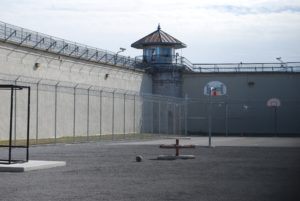 If a child commits a criminal offense in New Jersey they might be arrested or detained. The consequences of a juvenile crime range in severity. They can be something as minor as writing an essay for simple crimes to be tried as an adult for the most egregious offenses.
If a child commits a criminal offense in New Jersey they might be arrested or detained. The consequences of a juvenile crime range in severity. They can be something as minor as writing an essay for simple crimes to be tried as an adult for the most egregious offenses.
The New Jersey Juvenile justice system is entirely different from the system used to prosecute adults facing criminal charges. The juvenile system aims to rehabilitate rather than punish young offenders.
Have you or your child been charged with committing a juvenile crime in New Jersey? It’s essential to get the help of a skilled criminal defense lawyer Gloucester or Deptford, New Jersey. Attorney, Mathew V. Portella is highly experienced in handling juvenile cases. He can explain the nature and possible consequences of the juvenile charge that you or your child is facing and offer guidance on the steps to take.
Common Juvenile Offenses in New Jersey
Juveniles can face the same type of criminal offense charges as adults. But, the procedures used in court and penalties imposed are usually not as severe as those in adult courts. Here, are some of the common juvenile offenses:
- Shoplifting
- Sexual assault
- Simple assault charges
- Disorderly conduct
- Underaged driving while under the influence of alcohol or drugs
- Criminal mischief
- Drug offenses, which include possession of fewer than 50 grams of marijuana or drug paraphernalia, and drug possession with the intention to distribute
- Having a fake ID
When the alleged juvenile crime is particularly serious, like murder, or aggravated sexual assault, the accused may be charged as an adult. In that case, the juvenile matter will be dealt with in the regular adult court processes and the convicted juvenile will be subject to the same penalties adults face for the same crime. Family court judges make the final decisions on which juvenile offenses should proceed through adult courts.
Advantages of New Jersey Juvenile Court Framework
The juvenile court system is different from the system used for adults. Most of the differences between the two systems may be beneficial for young offenders. Here are some of the benefits of the juvenile court system:
- Consideration of the Child’s Best Interests: The main aims of the juvenile justice framework (in comparison to the adult system) are to rehabilitate and reform. Thus, the judges may take into consideration the best interests of the juvenile when issuing a sentence. In adult courts, the main focus is to punish and deter offenders from repeating criminal activities
- Judges Preside over Juvenile Cases: Juvenile cases are typically tried by Family Court judges. On the contrary, a jury of the defendant’s peers decides the outcome of numerous adult cases.
- Juvenile Cases Frequently Have Sentencing Alternatives: Sometimes, juvenile cases qualify for alternatives to sentencing, such as probation, counseling, community service, rehab, and suspension of driving privileges. Some of the alternatives may be considered inappropriate in adult court
Contact a Juvenile Matters Attorney in Gloucester or Deptford, New Jersey
Criminal cases involving juvenile offenders can be devastating for the parents, the child and other family members. When facing juvenile criminal charges, it’s best to seek the assistance of a NJ juvenile matters attorney. At the Law Office Mathew V. Portella, LLC, we’ve tried many cases involving juveniles, so we know what to expect and how to prepare well for favorable results. Call our firm today at 856-310-9800 or online to schedule a case evaluation.
